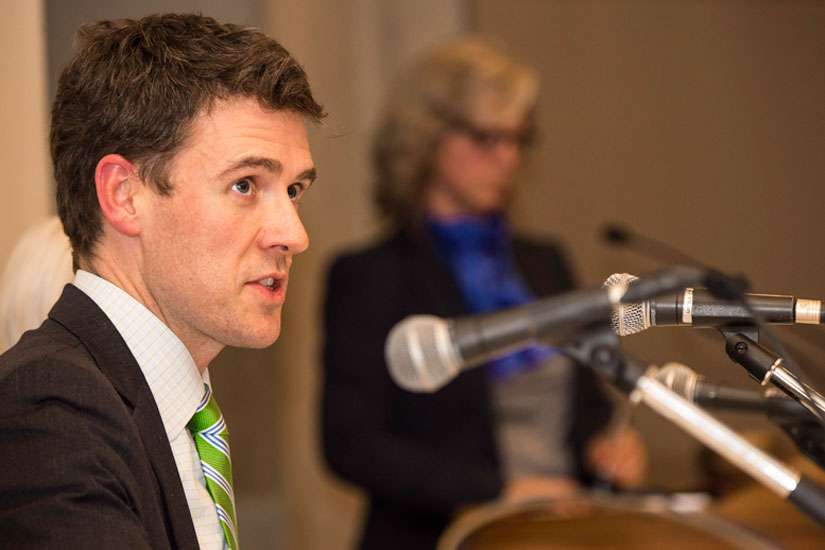Recently, Bennett said, Moscow Orthodox Patriarch Kirill declared all of Russia, Ukraine and Belarus as “one spiritually” and “one people,” and this “message of spiritual union has been hijacked by the Kremlin,” Bennett told a Catholic Near East Welfare Association (CNEWA) Canada fundraising breakfast for Ukraine May 29 that raised $20,000. This view is “being used to manufacture divisions in Ukraine along sectarian lines.”
“As you know, for centuries Ukraine’s diversity has been reflected in the multitude of different Orthodox, Catholic and Protestant churches, Jewish congregations and Muslim communities such as the Crimean Tartars,” the ambassador said.
“During visits to the country in January and October of last year, I witnessed first-hand the vibrancy of these communities, who, during the Maidan Revolution last year, all came together to call for democracy and respect for human dignity."
Russia has changed since Vladimir Putin has come to power, said Bennett.
“Russia has seen a rapid expansion of nationalist and neo-imperialist fervour, including through the deployment of the concept of the ‘Russian World’ whose boundaries are assumed to correspond, at the minimum, to the borders of the core territories of the old Russian empire,” he said.
“Regrettably, a number of religious communities are now being threatened by the campaign of intimidation being waged by a resurgent Russia, which as you know threatens Eastern Ukraine militarily and continues to undermine the democratic government in Kyiv,” Bennett said.
The Russian takeover of Crimea led to seizures of Kyivian Ukrainian Orthodox churches and Greek Catholic churches and caused priests and their families to flee for their lives, Bennett said. Their homes were desecrated with hateful slogans. Members of these churches have been subject to “regular surveillance and intimidation” as well as “abduction and murder” by Russian militia.
Russian agents are now coming to churches and carrying out surveillance and intimidation during services, he said.
Muslim Tatars have also been subjected to house-to-house searches on charges they are concealing radical material.
The ambassador applauded the work CNEWA is doing with its partners in fostering interfaith dialogue to promote tolerance and mutual respect, with the help of money from his office’s Religious Freedom Fund.
“They are helping Ukraine reject Soviet-era stereotypes” and thwart the “Russian propaganda campaign.”
The All Ukraine Council of Churches and Religious Organizations has been a counterweight to the “rhetoric and propaganda coming from Moscow,” he said. The religious leaders recognize “the important role” they are playing in creating a political space that is “democratic and recognizes human dignity,” he said. They are helping to “promote a dialogue among all Ukrainian citizens” and are held in high regard.
CNEWA Canada director Carl Hétu told the gathering Caritas partners in Ukraine are the Eastern Catholic Churches but they help everyone in need, regardless of whether they are Orthodox, Jewish or Muslim.
Recent fundraising efforts for Ukraine would soon add another $20,000 to that raised at the breakfast, for a total of $40,000, he said. He noted Caritas is the second largest charity in Ukraine after the Red Cross.
Russian and Ukrainian forces are mobilizing along the frontiers, raising fears of “full-fledged war,” Hétu said. Meanwhile, 1.5 million Ukrainians from the eastern part of the country have been displaced, another five million are directly affected by the conflict, more than 6,200 soldiers and civilians have lost their lives and a deepening recession has hurt the economy.
It’s not just a question of housing, food and hygiene but also dealing with trauma and spiritual needs, he said.

